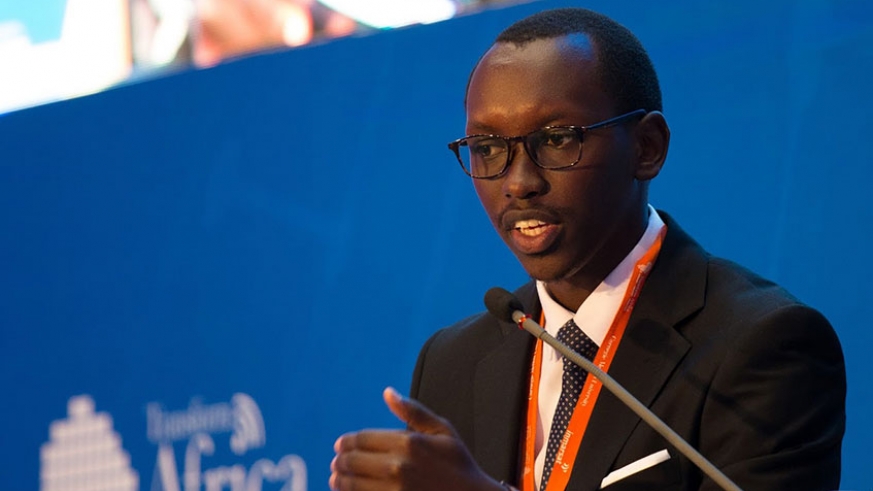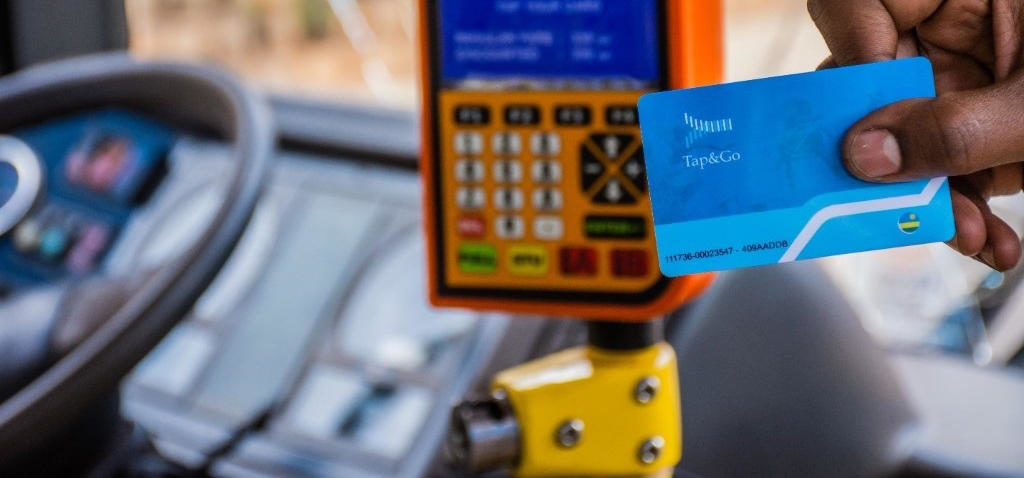My Life In Tech is putting human faces to some of the innovative startups, investments and policy formations driving the technology sector across Africa.
When you are born into a family of doctors or artists, it is not unusual to aspire to the same path especially if it is that of a parent you greatly admire and hold in high esteem.
And because the training is subliminal and almost lifelong, the resulting skills or staying power is such that one already has a head start above their peers. 29-year-old Rwandan, Philip Ngarambe, who is now attempting to bring a cashless revolution into public transport systems across African cities, was afforded a head start by his father, Ngarambe Charles.
Ngarambe’s father started out running a trucking business in Rwanda. When his attempts to obtain formal education in the Congo fell through, he began transporting goods for people to the border and trading in second-hand clothes in Mombasa, Kenya “where he made his first money”. This was at a time in the early 1990s when the then Rwandan government wanted its Kenyan counterpart to return its citizens to Kigali, and as such Rwandans in Kenya were essentially in hiding, Ngarambe said.
“He would go directly to buy from Belgian and the US [suppliers] directly negotiating deals with them,” Ngarambe says.
When the war ended, his father, realizing there was a pressing need for a local airline, started trying to find inroads into the aviation sector. His appointment as General Manager of Air Burundi, a local carrier within East Africa at the time was his foot in the door.
“I remember him calling us one day and saying, hey, I bought a plane! I’m starting an airline!”
The airline launched in 1999 with savings, and bank loans in partnership with Boeing.
“I used to say to him when I was much younger; If you started an airline, I’m going to have to buy a spaceship! I’m going to have to be doing transport to Mars! And he would laugh,” Ngarambe recalls.
“Because he set the bar so high. I used to wonder how we were going to ever measure up to that.”
Tap & Go
The opportunity came in 2010 when he returned to the country after spending his teenage years in Canada. By this time, his father had pivoted to operating a bus business in Kigali called Kigali Bus Services (KBS), after his airline went defunct. But due to the informal nature of the sector, he was losing 40-50% of his revenues to inconsistencies in the many hands that cash had to pass through before it got to him. Initially, after teaming up with his co-founder, Patrick Buchana, Ngarambe only wanted to create a solution to help his father and his peers in the bus sector have a firmer grip on their revenues.
“At the time, I was thinking about solving an issue in KBS and not necessarily the entire continent.”
But it didn’t take long to realise that many African cities also could not boast of formal, sane public transport systems and there was a huge opportunity to leave their imprints outside of Kigali.

“I met Patrick on the last stretch when I was about to give up on trying to do business back home in Rwanda,” Ngarambe says.
“When I met him, I was done with Rwanda, I was ready to go.”
A mutual friend had introduced the two seeing that were both trying to do some work within the transport sector. At the time, he was running a private hire company which entailed rentals for events and airport pickups.
“I knew I wanted to do something about my dad’s business especially with managing cash flow. I knew there was something [a solution], I had seen it before, I had used it in Canada but I didn’t just know how to put it together. She [their mutual friend] told me about a young guy who was trying to build a system for the whole country,” Ngarambe says.
They began trying out hardware and software combinations before finally arriving at their flagship product Tap & Go which are smart cards that commuters can top up and pay for their fares with, by tapping on card readers fitted in public buses across the city. Their first client was Kigali Bus Services (KBS).
The Tap & Go cards cost 500Rfw (US$0.5) to purchase and can be topped up with a minimum of 100Frw (US$0.11) and a maximum of 40,000Frw (US$43) daily. The company launched the cards in December 2015 and signed up its first 500 commuters. Currently, the company says it now has over 1.5 million customers in Kigali. At first, discarding the longstanding way of running bus operations proved to be an uphill task but with the Rwandan government’s commitment to a cashless society and rapidly scaling its growth through technology post-civil war, it did not take long for the cards to go mainstream. A year later, the company unveiled a free WiFi service to enable commuters access the internet during their commute.

Source: AC Group
“We are strategically aligning ourselves to become at least, one of the top three mobility solutions on the continent. And the way we are going about is, we want to spoil people who are using public transport on the continent,” Ngarambe says.
Already, the company has launched in Yaoundé, Cameroon and in Nairobi, Kenya. A market research in line with expansion plans into Cote d’Ivoire yielded no results and the company is in active talks with the Zimbabwean government on how the mobility products can be assimilated in the capital of Harare especially given the country’s crippling currency crisis.
“The dynamics in Cameroon are interesting. We are working with a government that is nonexistent.”
According to Ngarambe, while uptake in the laid back capital of Yaoundé is encouraging, the instability of the government still poses critical challenges for the business.
In 2018, Cameroon ranked 163rd out of 190 on the World Bank’s Ease of Doing Business report. Nonetheless, the company is bent on toughing it out in Cameroon in hopes that “there is a change in government” sooner than later. Governance has also become a critical determining factor in its expansion drive as it is now looking at launching in cities where the government, through its policies and disposition, shows readiness to provide services such as theirs for its people.
“We are here for the long term and patiently waiting for some of these countries to have some semblance of an enabling environment for a service such as this.”
Finding the source
One of his biggest lessons learned as a five-year-old startup, which he first saw and emulated from his father, is to find a direct path to the source of the raw materials for their technology solutions especially when working with hardware. In August, Ngarambe joined nine other African startup founders on a tech tour organised by Co-Creation Hub to meet and network with hardware manufacturers (and investors) from five Asian cities. Ngarambe says the program has been monumental for AC Group and will potentially save the company a lot of costs.
“We say technology will change the world and that’s true, but there’s also hardware,” Ngarambe says. And because the hardware manufacturing industry across Africa is almost nonexistent, China remains the go-to for hardware technology startups in the continent.
“And China is far.”
But having first hand experienced the pitfalls of working with a middleman and losing a lot of money in the process for the supply of some devices, he is strongly an advocate of going to the source, regardless of what that might take.
“You cannot expand if you are working with a middle man.”
Collaborate not compete
As part of the media team that accompanied Ngarambe and nine other hardware and deep technology startups through Asia on the tour, it was surprising to see during one of the many pitch events, that AC Group was already investing in another young Rwandan startup, Khenz, which provides e-ticketing solutions for long-distance bus operators.

Source: Khenz
“There is wisdom in finding a way to collaborate,” Ngarambe tells me when I say I find that surprising.
“We identified that we were in the same space, they were struggling as we did in terms of sourcing for finances, so instead of competing with them and costing us a lot of time and money, we thought why don’t we buy some shares in this company?”
And that is exactly what they did, acquiring a significant amount of shares to solidify their presence within the company.
“Their management still makes decisions, we sit on the boards, but we’ve joined forces to help us tackle larger markets together.”
According to Ngarambe, there will be more of such collaborations and acquisitions as the company looks to expand into more countries.
Philly Cheese Cakes
Ngarambe’s retirement plan, Philly Cheese Cakes, was supposed to come earlier. As a child growing up in Canada, cooking quickly became a grounding identity for this African youth trying to find his place in someone else’s territory. He picked up interest in cooking while taking classes at the University of Toronto and was hired at a restaurant where he started out washing dishes. He moved through the ranks, from doing prep work, to flipping burgers and then to preparing complex meals. He added baking to the side – cupcakes, cinnamon rolls which he sold to make extra cash for upkeep at school.
“I was nicknamed Philly Cheese Cakes.”
The plan upon his return was to open up a coffee shop and a bakery but not only was the coffee drinking culture in Rwanda nonexistent, there was also an urgency to help his father solve the revenue challenges he faced at Kigali Bus Services. He would have it no other way still.
“I’m glad that I made the decision to stay. I’ve never regretted it and I’ve never looked back.”





















